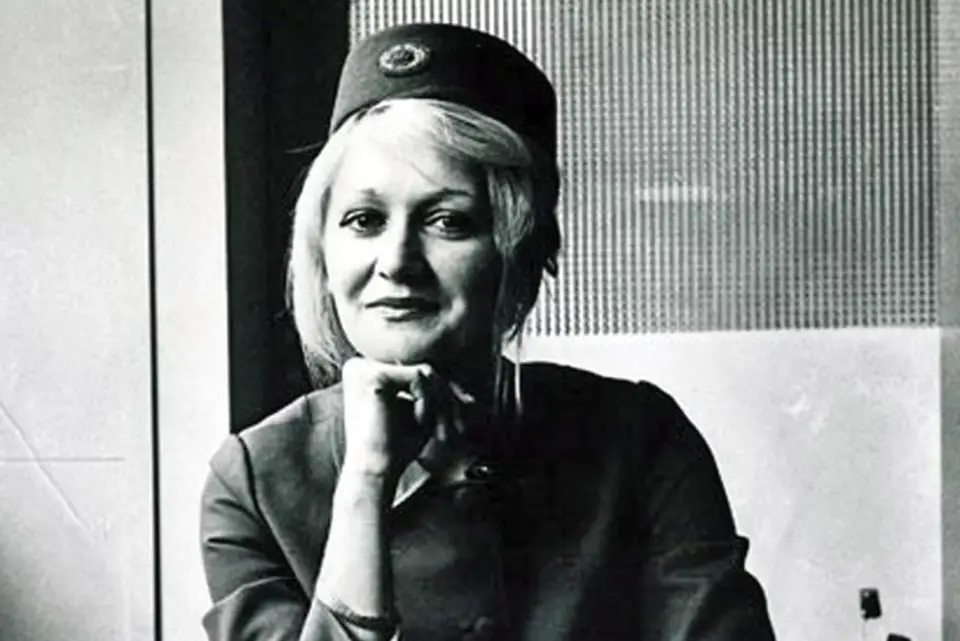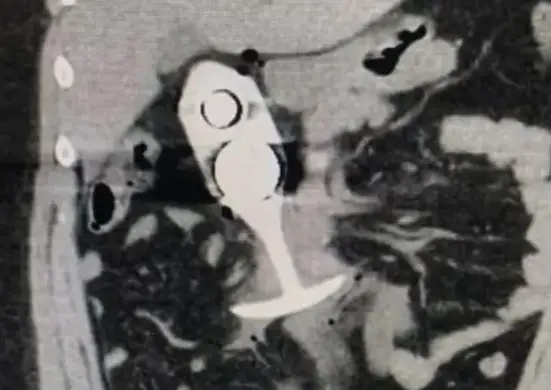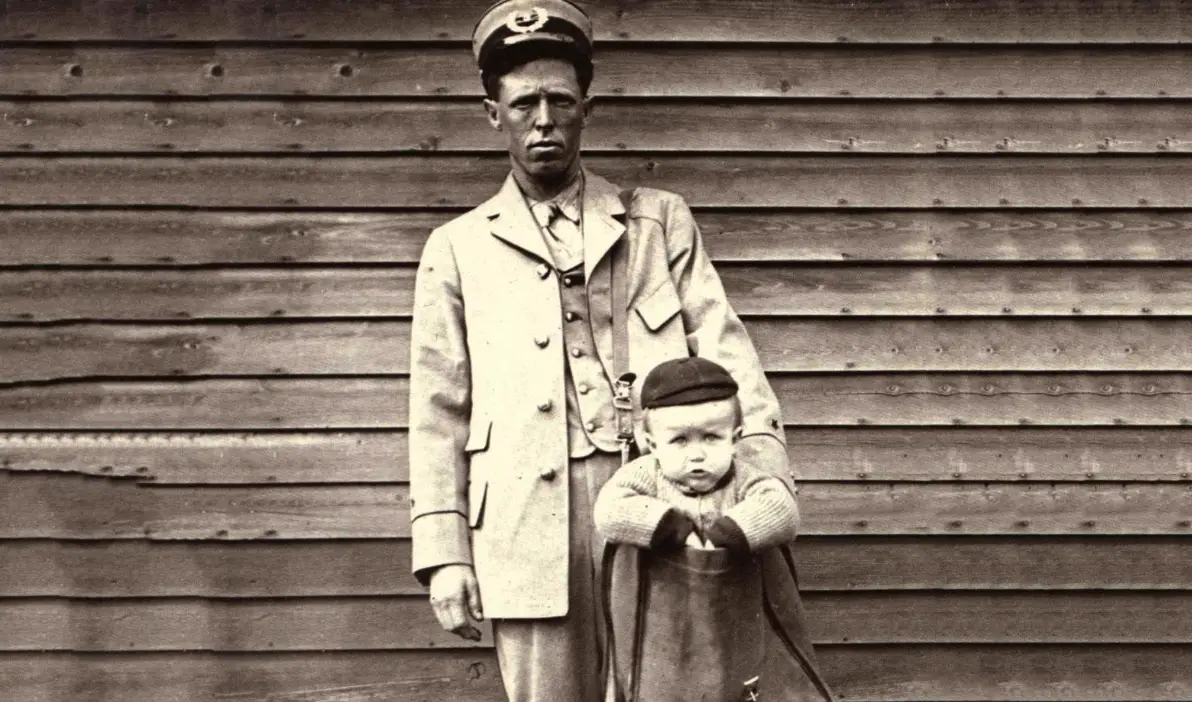Vesna Vulović: The flight attendant who survived a 33,000ft fall without a parachute after plane exploded mid-air

A Routine Flight Turns Tragic
On January 26, 1972, Vesna Vulović, a 22-year-old Serbian flight attendant, stepped aboard JAT Flight 367, a McDonnell Douglas DC-9 traveling from Stockholm to Belgrade with stopovers in Copenhagen and Zagreb.
She wasn’t meant to be there. Another flight attendant, also named Vesna, was scheduled for the flight, but a mix-up placed Vulović on the roster.
The plane carried 28 people—23 passengers and 5 crew members.
At 4:01 p.m., while cruising at 10,160 meters (33,333 feet) over Srbská Kamenice, Czechoslovakia (now part of the Czech Republic), a bomb exploded in the baggage compartment.
The aircraft disintegrated mid-air. Debris rained down on a snowy, forested mountainside.
All 27 other passengers and crew perished. The explosion, later attributed to a briefcase bomb, was suspected to be the work of Croatian nationalists, though no arrests were ever made.

A Miraculous Survival
Against unimaginable odds, Vesna Vulović survived. She was found alive in the plane’s tail section, pinned by a food cart that likely kept her from being sucked out during the explosion.
The tail plummeted through pine branches and landed on a steep, snow-covered slope, which investigators said softened the impact.
Bruno Honke, a local woodsman and former World War II medic, heard her screams in the dark forest.
He found her half-buried in the wreckage, another crew member’s body atop her. Honke provided critical first aid, keeping her alive until rescuers arrived.

Vulović’s injuries were catastrophic. She suffered a fractured skull, cerebral hemorrhage, three broken vertebrae (one crushed), broken legs, broken ribs, and a fractured pelvis.
She was temporarily paralyzed below the waist. Doctors doubted she would survive.
She spent 27 days in a coma and had total amnesia of the crash—her last memory was greeting passengers before takeoff.
Her survival defied medical expectations. Doctors later suggested her low blood pressure, which nearly disqualified her from becoming a flight attendant, may have saved her.
It caused her to pass out quickly during the fall, reducing stress on her body and preventing her heart from bursting on impact.
The Road to Recovery
Vulović’s recovery was grueling. She spent months in a Prague hospital, undergoing multiple surgeries.
Her injuries left her with chronic pain and a permanent limp. Yet, within 10 months, she regained her ability to walk—a testament to her determination.
She had no fear of flying after the crash. “I love flying,” she said in an interview. “It’s part of who I am”.
In September 1972, she expressed a desire to resume work as a flight attendant.
JAT Airlines, wary of the publicity her presence would attract, gave her a desk job negotiating freight contracts instead.
She accepted but continued flying as a passenger, often surprising others who recognized her.

A Life Before the Crash
Born on January 3, 1950, in Belgrade, Yugoslavia, Vesna Vulović grew up with a passion for languages and adventure.
Her father was a businessman, her mother a fitness instructor. As a child, she enjoyed ballet and basketball.
She studied English at the Faculty of Philology in Belgrade, honing her skills by translating Beatles lyrics.
Her love for travel led her to become a flight attendant, a role that combined her linguistic skills with her sense of exploration.
| Vesna Vulović’s Survival | Information |
|---|---|
| Date of Crash | January 26, 1972 |
| Flight | JAT Flight 367, McDonnell Douglas DC-9 |
| Altitude of Fall | 10,160 meters (33,333 feet) |
| Cause | Briefcase bomb explosion |
| Survival Factors | Pinned by food cart, landed on snowy slope |
| Injuries | Fractured skull, broken vertebrae, legs, ribs, pelvis |
| Recovery Time | 10 months to walk, 16 months total |
| Guinness Record | Highest fall survived without parachute, 1985 |
| Death | December 23, 2016, age 66 |
A National Hero and Global Icon
Vulović’s survival made her a celebrity. In Yugoslavia, she was hailed as a national hero.
President Josip Broz Tito honored her, and Serbian folk singer Miroslav Ilić recorded a song, “Vesna the Stewardess,” in her name.
She became an honorary citizen of Srbská Kamenice, where the crash occurred. Bruno Honke, her rescuer, named his granddaughter Vesna in her honor.
Her fame extended beyond Yugoslavia. In 1985, the Guinness Book of Records recognized her for surviving the highest fall without a parachute—10,160 meters.
Paul McCartney presented her with the award at a London gala, cementing her status as a global icon.

Courage Beyond Survival
Vulović’s bravery wasn’t limited to her survival. In 1990, she was fired from JAT for protesting against President Slobodan Milosevic’s nationalist policies.
Despite the risk of arrest, she campaigned against nationalism for two decades, advocating for peace in a region scarred by conflict.
She lived modestly in her later years, supported by a small pension.
Divorced and childless after an ectopic pregnancy, she shared her Belgrade apartment with three cats.
Her parents passed away within years of the crash, a loss she attributed to the trauma of her accident.

A Disputed Narrative
In 2009, Prague journalists Peter Hornung and Pavel Theiner challenged the official account.
They claimed JAT Flight 367 was shot down by the Czechoslovak Air Force, mistaken for an enemy aircraft, at just 800 meters (2,625 feet).
They cited eyewitnesses who saw the plane on fire at low altitude, its proximity to a military zone, and the absence of black boxes.
They suggested Vulović’s survival story was a Communist cover-up.
The theory sparked debate but lacks strong evidence. Official investigations, including black box data analyzed in Amsterdam, confirmed the bomb explosion at 10,160 meters.
Czechoslovak Air Defense and Czech military experts dismissed the claim, noting that West German radar would have detected any fighters and that hundreds of soldiers would have known.
A MythBusters episode also concluded her survival was plausible given the wreckage’s landing conditions.
Vulović herself remained agnostic. “I don’t know what happened that day,” she said.
“I have no memory of the crash. But I fell from a great height, and I’m grateful to be alive.”
A Lasting Legacy
Vesna Vulović passed away on December 23, 2016, at age 66. Friends found her dead in her Belgrade apartment after she failed to answer calls.
The cause of death was not disclosed. She was survived by her brother.
Her story endures as a symbol of hope. She survived the impossible, recovered against the odds, and stood for peace in turbulent times.
Yet, she viewed her survival with humility. “If I were lucky, my parents would be alive,” she said. “The accident ruined their lives, too.”
Vesna Vulović’s life reminds us that survival is not just about defying death but about living with purpose. Her story, etched in history, continues to inspire.



































